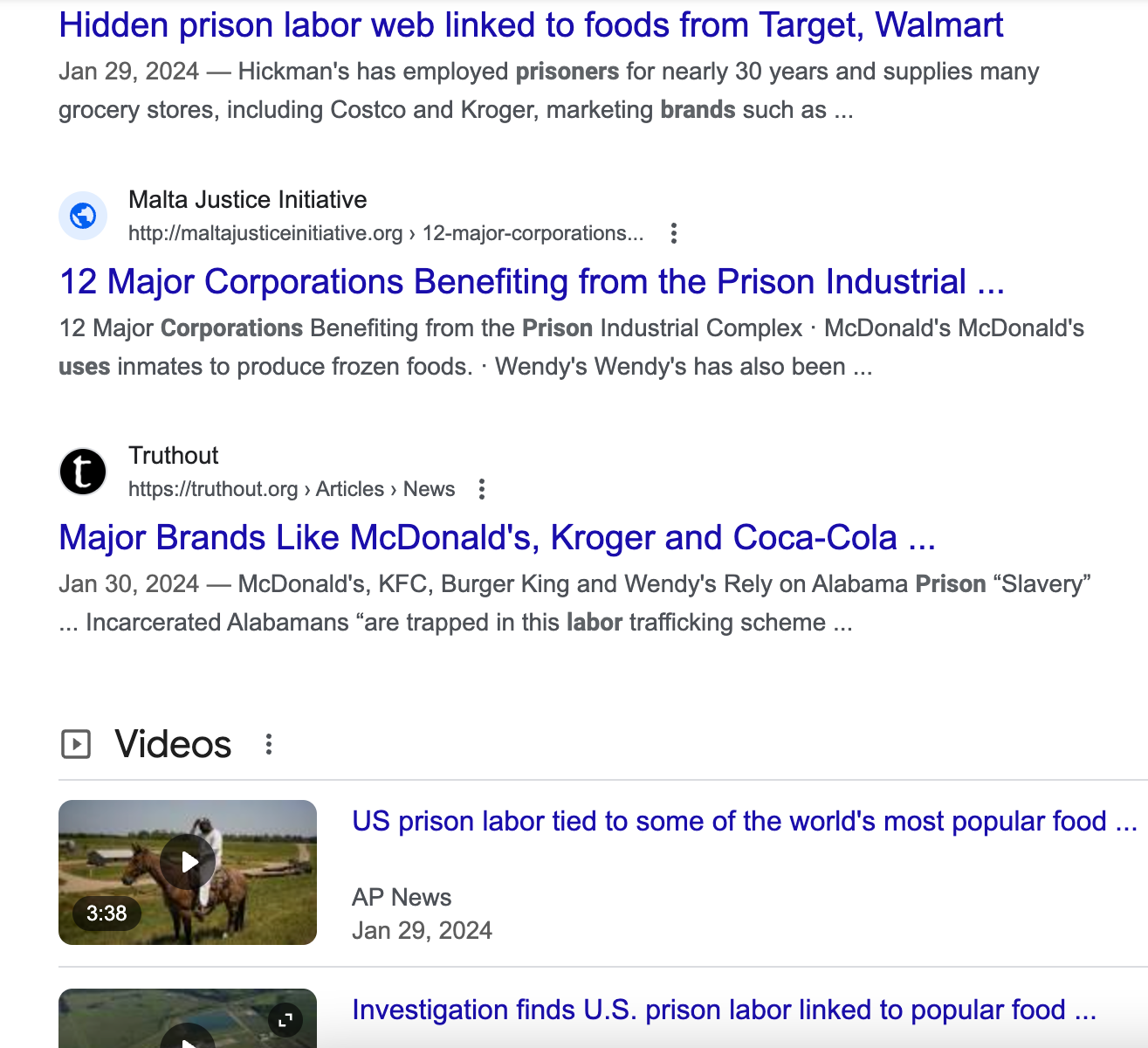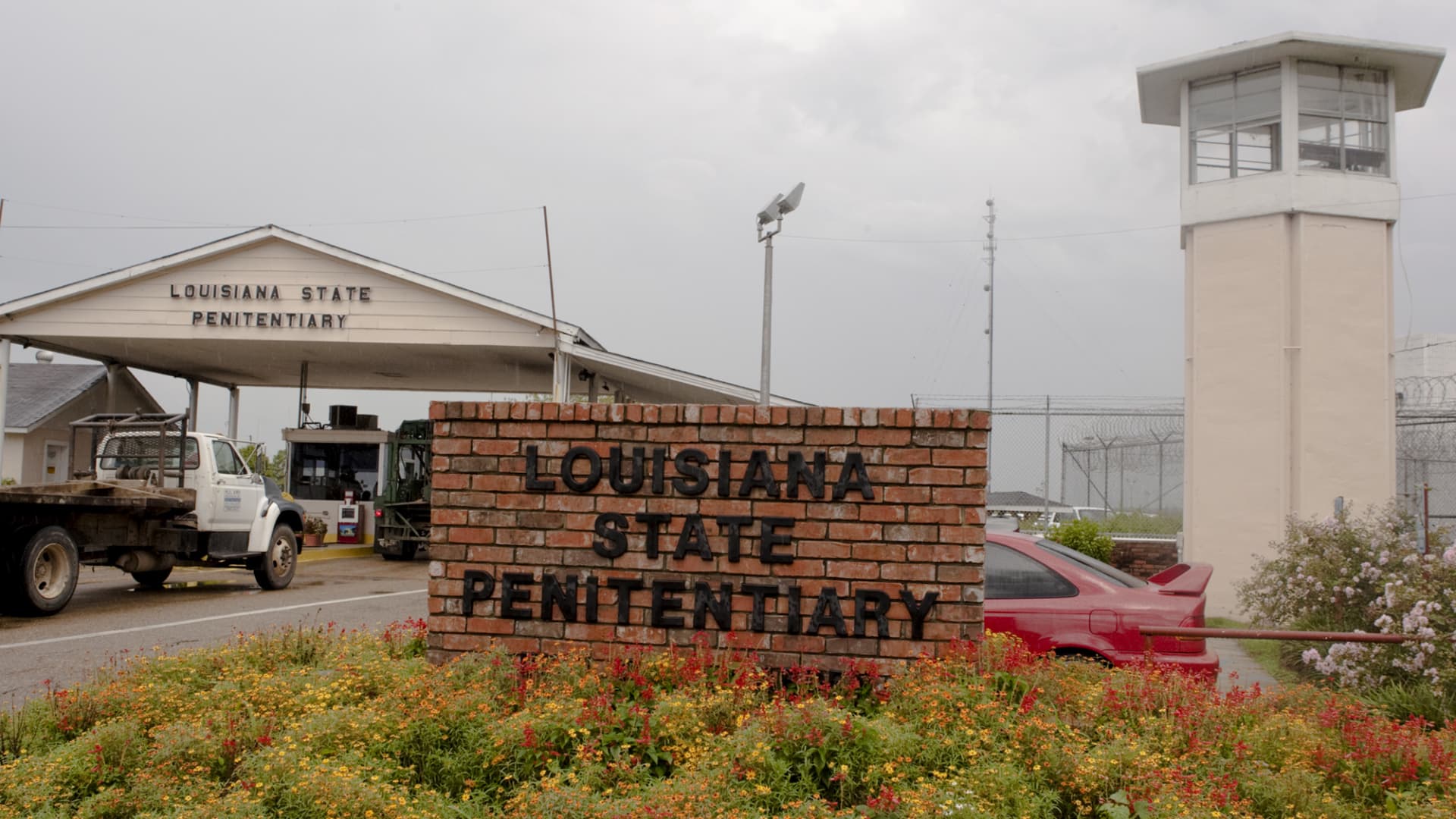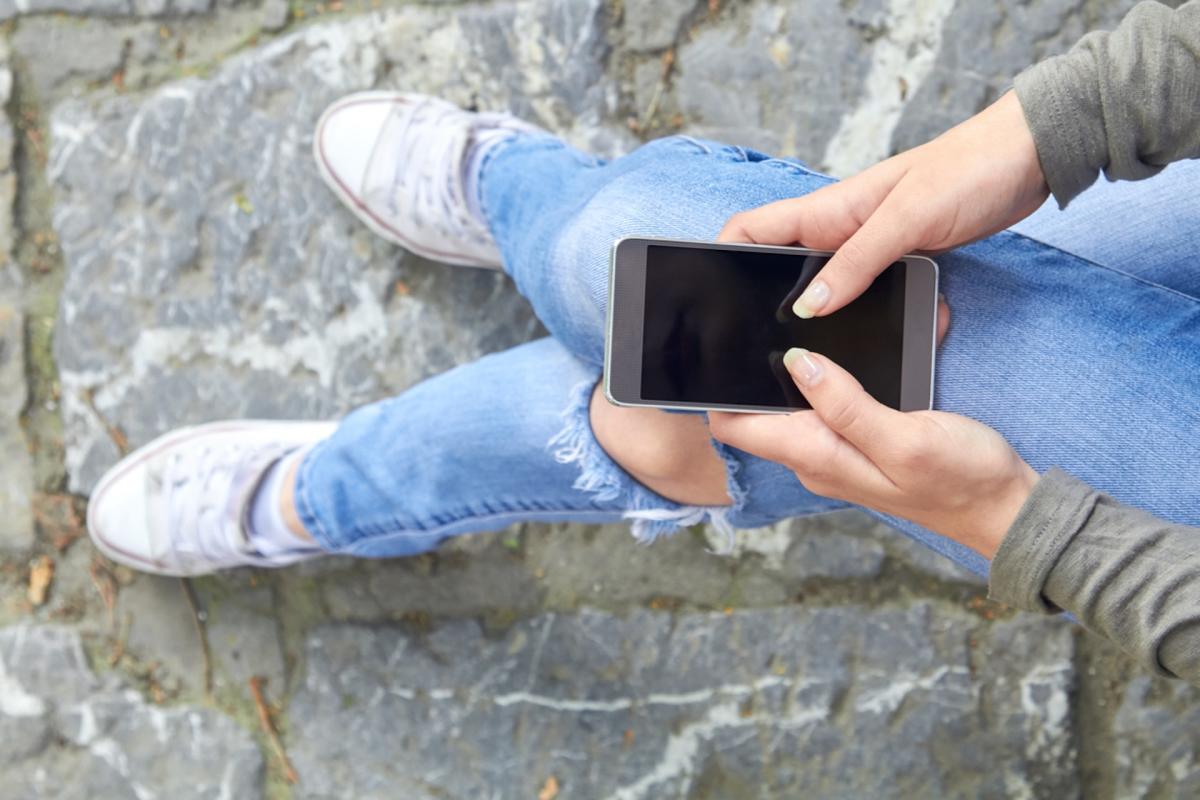we consent when we consume
i tried to start writing this in August.
for the past few years i'd given something up in honor of Black August as a symbolic act to remind me daily how much Black freedom fighters have given up to fight for freedom that benefits all of us, unfinished as that struggle may be. this year i thought about giving up products from corporations who use prison labor, remembering an article i had read about wendy's produce being farmed by incarcerated people. i had recently watched a formerly incarcerated person advocate for legal intervention against the brutal work he and other incarcerated people do at angola prison here in louisiana (i can't find this video. if anyone can point me towards it, i'd be grateful). he said 2 cents is all that separated him from slavery. i thought of how my money goes into the pockets of the people who are comfortable paying those 2 cents. i tried to look up companies to boycott if i didn't want my money going to these board of directors head ass enslavers anymore.

as i am learning from trying to be more diligent about using my boycat app as part of my commitment to the BDS (boycott, divest, sanction) movement, the only real way to avoid feeding into these systems—prison industrial, military industrial—is to stop buying from corporations all together.
on the pervasiveness of prison labor
The goods these prisoners produce wind up in the supply chains of a dizzying array of products found in most American kitchens, from Frosted Flakes cereal and Ball Park hot dogs to Gold Medal flour, Coca-Cola and Riceland rice. They are on the shelves of virtually every supermarket in the country, including Kroger, Target, Aldi and Whole Foods. And some goods are exported, including to countries that have had products blocked from entering the U.S. for using forced or prison labor.

yes corporations are evil, but we are contributing too
it's not just those who exploit incarcerated people we're supporting financially, we hand so much money over to those who exploit our planet.
in classic western binary fashion, i have felt a shift in rhetoric in the last five years from focusing on individual responsibility (don't use straws, compost) to corporate and elite responsibility (oil companies are evil and taylor swift flying private jet memes).
as my best friend and i often say, two things can be true! you and i are not harming the environment at a thousandth of the scale that Venture Global LNG or the zionist entity and US militaries are, AND that does not mean that our consumption and habits are not contributing and upholding this system.
as Sage Lenier highlights in the video below, if you make $40,000 USD or more a year, you are part of the richest 10% of the global population and we, the richest 10%, are responsible for 50% of global emissions.
"hot take: it’s almost impossible to separate out responsibility from the big evil corporations and the people who fund overconsumption and environmental destruction by buying from them (and of course, this does not apply to actual necessities like food). it’s easy for us in the West to think that we are not rich when we compare ourselves to billionaires. But the mountains of fast fashion abandoned in developing countries did not come from billionaires, but from the global middle class. The 15% of global emissions that come from the meat industry cannot be attributed to just 3000 billionaires, but the global middle class. we each have to take responsibility for our role in creating an overconsumption economy by choosing to divest. “It’s not my fault XYZ company i buy from is so unethical, we need system change!” girl and how are we gonna get it? they’re not going to wake up tomorrow and decide to be better people while you continue to line their pockets. Money talks!"
if you haven't watched it yet, i highly recommend "Buy Now! The Shopping Conspiracy" on netflix (trailer below). yes we all know that overconsumption is a problem, but hearing experts talk about it, seeing what happens when we throw things "away," and spending an hour with visualizations of what we're contributing to was enough to really solidify a commitment for me.
the Commons app can help you start to conceptualize how you're contributing to the problem
like the blub below says, this app will not save the planet. but understanding and taking responsibility for our personal contributions is a good first step towards making meaningful, informed changes where we have control, in our own habits.
Earth-friendly app Commons believes in our power to better the world. With assistance from your mobile device, you can measure and improve your environmental impact. Currently, it also pays you for eco-positive purchases. Of course, nobody can save the planet simply by shopping or tapping on touch screens, but the app leverages the fact that household spending influences more than 60% of the global air pollution that's overheating our planet, citing a 2015 study.

i have been trying to shift my life in easy ways in hopes of contributing to meaningful change. i have been trying to be less complicit while preserving my own comfort.
the reality is that our government, financial, and health systems are controlled by capitalists who only care about profit and as long as we continue to put our money towards things, they will continue to happen.
something the Commons app focuses on is how making changes with support and commitment from friends and family is a way to stick to those changes and expand our positive impact. can we carpool with a friend to a farmers market? can we commit to eating red meat only once a week and ask a friend to be our accountability buddy? can we make a pact in our family to only order things online once a quarter and only what we actually need?
in asking our communities to help us change, not only are we more likely to change, we are fighting against the individualism and the mindsets it creates that have allowed capitalism to run rampant, threatening our very survival.
we can't fix any of these problems alone, but that doesn't mean we aren't responsible for our contributions.
as always, i hope this is useful.
with hope,
katie wills evans


